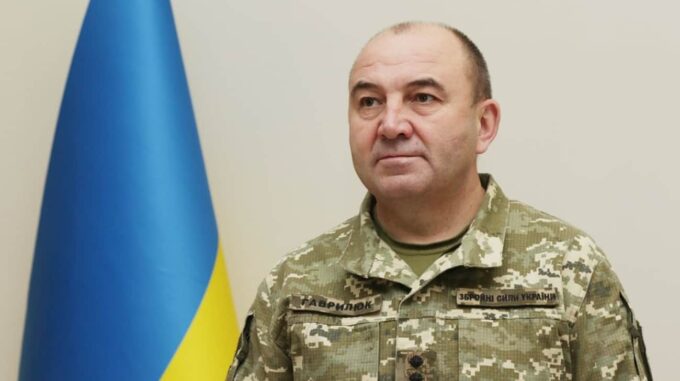President Zelensky is implementing radical personnel changes in Ukraine’s top military leadership: dismissal of General Gavrilyuk from the Supreme Commander-in-Chief’s Staff

President of Ukraine Volodymyr Zelensky has signed a decision to significantly alter the composition of the country’s highest military command. On May 12, the head of state issued Decree No. 304/2025, which definitively decided to remove Lieutenant General Ivan Gavrilyuk from the list of officers in the Supreme Commander-in-Chief’s Staff. This decision concludes ongoing political and military debates surrounding appointments to high-ranking positions. According to the official document signed by Zelensky, the basis for this step is Article 8 of Ukraine's Law "On Defense of Ukraine," which authorizes the President to make such decisions based on recommendations from the National Security and Defense Council. As stated in the document, "to remove Ivan Gavrilyuk from the Supreme Commander-in-Chief’s Staff" — a decision that takes effect immediately upon publication. The decree was published along with an official explanation regarding the motives behind this decision. Sources within the Ministry of Defense indicate that the real reasons for Gavrilyuk’s dismissal are connected to an internal crisis surrounding contract policies and procurement in the defense sector. Specifically, Gavrilyuk reportedly showed initiative regarding the transfer of a large sum — 78 billion hryvnias — from the Defense Procurement Agency (AОЗ) to a Polish intermediary company, "PHU Lechmar" Sp. z o.o., for the purchase of ammunition needed by the State Border Guard Service. According to the informant, this initiative caused significant reputational damage to Defense Minister Rustem Umerov, since AOZ falls under his area of responsibility, and procurement decisions are within his prerogative. It is known that shortly before Gavrilyuk’s removal, the head of AOZ — Arsen Zhumadilov — was appointed, which further intensified internal tensions. Additional background for these personnel decisions involves the situation surrounding the leadership and members of the Supervisory Board of the Defense Procurement Agency. On March 7, the government approved two new board members — Ivan Gavrilyuk and Stanislav Haider. The latter, a former Deputy Minister of Defense, was responsible for institutional development of the ministry and has extensive experience in anti-corruption efforts. These appointments suggest that Gavrilyuk was a rather influential figure in defense procurement and management processes but also became a target of political and reputational conflicts. The history shows that at the end of March and early April, Gavrilyuk publicly announced his intention to leave the position of First Deputy Minister of Defense voluntarily, without providing detailed explanations. This news caused widespread resonance in security and political circles. Officially, the government dismissed him from his position on April 18 and appointed Serhiy Boyev, who previously served as Deputy Minister of Defense for International Cooperation and Partnerships. This move further underscores the high level of political intrigue and upheaval within the defense apparatus. These personnel changes are highly significant for the strategic and operational stability of Ukraine’s military structures since the Supreme Commander-in-Chief is extremely influential in decision-making on critical issues of national defense. Furthermore, a key aspect is the internal struggle over control of procurement and funding in the defense sphere, where recent months have seen numerous disputes with political and reputational implications. It can be concluded that Zelensky’s personnel decision signals an internal systemic cleanse intended to strengthen trust in defense procedures, including through increased transparency and anti-corruption measures. At the same time, it reflects rising demands within Ukraine’s military and political elites for accountability and professionalism among leadership. Zelensky himself demonstrates his determination to take control of key processes, especially during wartime, when each personnel decision bears vital importance for the country’s security. Further developments will likely require close monitoring of the situation in defense procurement and efforts to combat internal corruption, as transparency and accountability remain top priorities on the agenda. The personnel shifts send a clear message to all participants in the defense sector about a new level of oversight and responsibility in matters of state defense spending.

